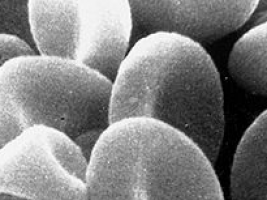
New research announces that its preclinical study investigating the ability of lilotomab satetraxetan to reverse rituximab-resistance in disease models of non-Hodgkin’s lymphoma (NHL) has been published in the October 2020 issue of The Journal of Nuclear Medicine.
NHL is the most common blood cancer and has a high mortality rate.
The CD20-targeting monoclonal antibody immunotherapy rituximab was approved for treatment of NHL more than 20 years ago and is the current standard of care.
However, many patients eventually develop resistance against rituximab, which is often associated with changes (a decrease) in expression of the CD20 antigen on NHL cells.
The study found that:
Lilotomab satetraxetan (an anti-CD37 radioimmunoconjugate) acted synergistically with rituximab (anti-CD20 immunotherapy) to suppress tumour growth in a rituximab-resistant xenograft NHL mouse model.
The median survival time of mice treated with this combination doubled when compared to survival of mice given lilotomab satetraxetan monotherapy and was five times longer than for mice given rituximab monotherapy.
In NHL cell lines, lilotomab satetraxetan was found to substantially increase CD20 expression and rituximab binding to rituximab-resistant Raji2R cells and to increase rituximab-mediated antibody-dependent cellular cytotoxicity (ADCC) activity, resulting in significant tumour growth delay.
“This work is potentially very important, as it could provide a welcome treatment option for the large pool of NHL patients who have become resistant to rituximab.
If those patients receive an injection of lilotomab satetraxetan, they could be treated again with rituximab and have an improved response,” said Dr Jostein Dahle, Chief Scientific Officer of Nordic Nanovector.
“In a Phase 1b clinical trial, a 100 percent complete response rate was achieved in the first group of patients treated with lilotomab satetraxetan followed by rituximab.
Achieving a complete response is very important as it usually correlates with an improved duration of response and overall survival.”
Dr Dahle continued, “Combination treatments are the future for cancer therapy.
By exploring strategies with radioimmunotherapy together with other drugs, nuclear medicine may play an important role in lymphoma therapy.”
Source: Nordic Nanovector
The World Cancer Declaration recognises that to make major reductions in premature deaths, innovative education and training opportunities for healthcare workers in all disciplines of cancer control need to improve significantly.
ecancer plays a critical part in improving access to education for medical professionals.
Every day we help doctors, nurses, patients and their advocates to further their knowledge and improve the quality of care. Please make a donation to support our ongoing work.
Thank you for your support.